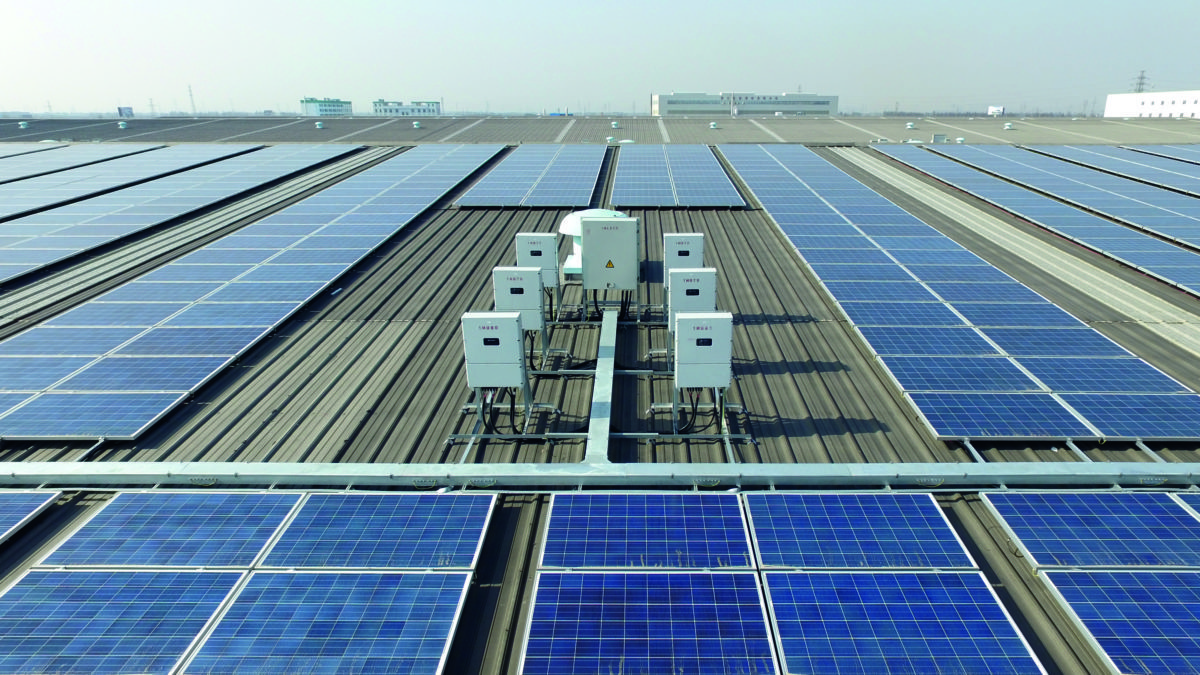According to a briefing paper released by the Asia Europe Clean Energy (Solar) Advisory Co. Ltd. (AECEA) over the weekend, Friday’s public policy notice abolished the 13.9 GW target established by China’s National Energy Administration (NEA) for utility-scale projects in 2018. Beijing’s policy update also instructs China’s provinces to stop further projects seeking 2018 FITs in any form.
According to AECEA: “Taking into account that last year, utility-scale projects amounted to approximately 33.62 GW, this rather drastic measure will undoubtedly not only slow down demand for the remainder of the year, but for the remaining period of the 13th Five Year Plan as well.”
Just last week in Shanghai at SNEC – the world’s largest PV event – IHS Markit gave a much more bullish assessment for this year, and the next four years, at its 2018 PV Market Workshop. According to the IHS analysts, this year would match 2017’s record 53 GW of installations and the next four years would feature annual installation rates in the 50-60 GW range. The mood at SNEC was upbeat, with a recordnumber of visitors and exhibitors in attendance.
At the workshop IHS Markit did caution however, that there were conflicting forecasts related to the Chinese market. The analysts said optimists are predicting another blow-out year – to the tune of 55-60 GW – but another camp, the pessimists, see only 35-45 GW being added in 2018. The latest policy update from Beijing makes even that pessimistic view now appear optimistic. AECEA has cut its forecast from 40-45 GW to 30-35 GW and regards even the lower range as “still optimistic” in its latest briefing paper. As a result, this year’s market could decline by more than a third on last year’s 53 GW.
And the latest notice from Beijing is not restricting its aim to the utility-scale segment. Last year’s poster child – distributed generation (DG) – will be hit hard by a 10 GW cap. AECEA estimates it “highly likely” the 10 GW DG installation mark was already reached at the end of last month. The weekend notice calls for “DG projects not realized by the central government to seek financial support from respective local governments”, as Beijing looks to its local authorities to do the heavy lifting and provide the needed subsidies to keep the market segment alive. Whether local government will step up to the plate remains uncertain, and this type of localism will make it harder to find suitable locations for DG systems.
One bright spot from Friday’s notice is that at least it does not seem to curtail residential PV. According to AECEA this market segment – which only produced around 2 GW of installations in 2017 – could yield up to 5 GW this year. However compared to the 2017 DG total of 19.44 GW, that is a small contribution to the overall distributed market.
Why has Beijing taken fright? AECEA’s analysis points to booming national FIT payments after the 53 GW installed last year. Like most of the forecasters, Beijing was caught by surprise by the record-breaking installation figure – although operators in the world’s mature markets will surely have indulged in a wry smile at the thought of China’s central government scrambling to back down from too-generous FITs.
Paradoxically, China’s ability to reduce curtailment by half, vis-à-vis 2016, made matters worse for the central government. Less curtailment means more PV power being added to the grid, which in turn increases the FIT payments PV plant owners can demand from central government. At the end of last year, outstanding FIT payments amounted to approximately €15 billion ($17.59bn), according to estimates collected by AECEA.
Obviously, such a sharp reduction in demand in China will impact PV markets around the world, as it will exacerbate over-supply in the world’s biggest PV manufacturing marketplace – whether in polysilicon, ingots, wafers, cells or modules. The policy handbrake will accelerate consolidation among PV manufacturers – something Beijing has been pushing for, notably through the introduction of the Top Runner program, which the latest policy updates will not affect. As a result, one way to interpret Friday’s bombshell notice is that it represents another important measure to foster industry consolidation and build national champions who can excel at home and overseas.
This content is protected by copyright and may not be reused. If you want to cooperate with us and would like to reuse some of our content, please contact: editors@pv-magazine.com.








By submitting this form you agree to pv magazine using your data for the purposes of publishing your comment.
Your personal data will only be disclosed or otherwise transmitted to third parties for the purposes of spam filtering or if this is necessary for technical maintenance of the website. Any other transfer to third parties will not take place unless this is justified on the basis of applicable data protection regulations or if pv magazine is legally obliged to do so.
You may revoke this consent at any time with effect for the future, in which case your personal data will be deleted immediately. Otherwise, your data will be deleted if pv magazine has processed your request or the purpose of data storage is fulfilled.
Further information on data privacy can be found in our Data Protection Policy.